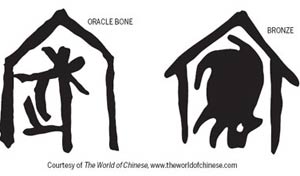Chengdu tops China in attracting service outsourcing investment
Updated: 2011-10-13 09:03
(chinadaily.com.cn)
|
|||||||||
China released the Evaluation Report on Investment Attracting Capacities of Chinese Service Outsourcing Cities in 2011. Chengdu ranked first with 88.36 points, according to Chengdu municipal bureau of commerce on October 9. The report makes detailed analysis of the development opportunities of the Chinese service outsourcing industry, features and development trends of service outsourcing cities, appraisal systems, and TOP 50 cities. It announced the top 10 city names and assessment indexes. Chengdu was ranked first with the highest scores.
Excel in comprehensive quality
The Evaluation Report on Investment Attracting Capacities of Chinese Service Outsourcing Cities is the only professional assessment of the Chinese service outsourcing industry on investment attractiveness of Chinese cities engaging in service outsourcing. It has closely formed ties with cities and outsourcing businesses. The evaluation targets are 21 service outsourcing demonstration cities, including Beijing, Shanghai, Dalian, Chengdu and Xi’an, and 35 non-demonstration cities, such as Shenyang, Yantai, and Ningbo. It has, for the first time, revealed the situation of Chinese service outsourcing cities since China introduced the outsourcing business. It breaks the previous pattern of focusing on the industry and companies by studying the outsourcing industry.
According to Qi Haitao, CEO of China Outsourcing Network, which initiated the evaluation activity, the Report has put forward the IEEG evaluation system for Chinese service outsourcing cities. This is done on the basis of OIOP, an international operation standard, and the DEVOTT four-dimensional spatial model. The system covers the four grade-one indexes, which are industrial basis, economic level, supporting environment, government support, and 60 segmented indexes. It evaluates service outsourcing cities in diversified angles and all-round approach to comprehensively reflect the overall strength and investment attractiveness of the cities. Qi says that “In this evaluation, Chengdu has the highest average score, because it has low comprehensive costs, sound overall industrial environment, and a good whole industry motivation system.” With a fine environment, sufficient human resources, low commerce costs, and quality government services, Chengdu has become the best destination to receive investment from Chinese and foreign service outsourcing companies.
Prospect
Li Hao, deputy director of Chengdu municipal bureau of commerce, says that in recent years, Chengdu has given priority to developing service outsourcing as a key emerging business. The service outsourcing industry has developed fast. In 2010, the city’s service outsourcing output values exceeded 30 billion yuan, with 100,000 employees in the sector. The Chengdu service outsourcing industry has gradually embraced famous multi-national businesses, leading Chinese companies, and local companies. To date, three of the world top 10 service outsourcing companies, IBM, Accenture and WIPRO, have settled in Chengdu. They are accompanied by 18 others of the world top 100. Six of China’s top 10 services outsourcing companies have set up branches in Chengdu. Over 40 multi-national companies have established global delivery centers, sharing service centers or R&D centers in Chengdu. In 2010, 10 companies employed over 1,000 staff respectively. Six companies were listed into the Top 100 Chinese Service Outsourcing Companies in 2011. Li says that “In the next move, we will continue to make great efforts inviting businesses and investment. We are highly interested in the top 30 companies in the IT R&D, biological medicines, and financial service outsourcing sectors. We will attract more World Top 100 service outsourcing companies to Chengdu. We will also support local companies and companies from other parts of the country.”
Qi proposes that to sharpen competitiveness, Chengdu’s service outsourcing industry needs to segment fields into an industrial chain, and transform from extensive development to intensive growth.









